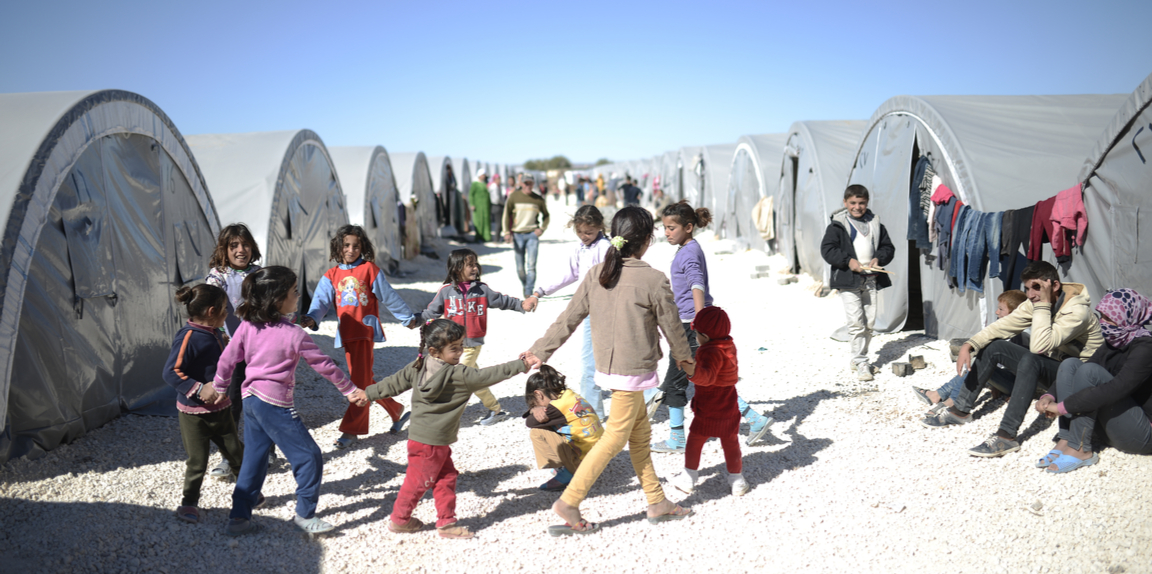LI: It is time to accept that the refugee crisis is the humanitarian challenge of our generation
20 Jun 2018 09:59 AM
Refugees and migrants face unacceptable risks from trafficking, forced prostitution and forced labour according to a new study by the Legatum Institute

The report, published to mark UN World Refugee Day, examines the evolving nature of the so-called ‘irregular’ journeys of refugees and migrants, the factors motivating them, and the risks they face in transit. It finds that governments around the world are lacking the data with which to assess the scale and severity of the challenge, preventing them from formulating an effective policy response. It suggests that our current approaches to accommodating displaced people are outdated and need to change in order to reflect the plethora of evolving factors that shape migration.
Read the full press release here.
The Legatum Institute’s new Global People Movements report highlights that:
- The number of registered refugees has reached a record high. By mid-2017 there were an estimated 25.9 million refugees and asylum seekers in mid-2017 (including 5.3 million Palestinian refugees).
- Registered refugees represent only a fraction of all migrants who are vulnerable or driven by necessity. The number of individuals forcibly displaced (internally and cross-border) has reached a record high. In total, at least 66 million people globally are experiencing forced displacement.
- Most migrant journeys are to neighbouring low-to middle-income countries within the region of origin. The lowest income countries host about 30% of the global total of refugees. Of the 66 million people globally who have been forcibly displaced, approximately 40.3 million are displaced within their own countries.
- Exposure to slow onset emergencies and significant socioeconomic vulnerability are consolidating factors of migration. While conflict is a well-recognised cause of migration, many more migrants are exposed to high levels of socioeconomic vulnerability, a climate of insecurity and natural hazards.
- Migrants are frequently exposed to intolerable levels of risk in transit. Irregular migrants face dangerous journeys. They are unprotected, accumulate debt, and have no legal recourse. The limited opportunities for legal migration forces individuals to use people smugglers, where there is a risk of being trafficked. Migrants who fall prey to human traffickers can be exploited in both transit and destination countries.
- The number of identified victims of human trafficking could represent less than 1% of the true number. During the migrant journey, the fine line with human trafficking - the acquisition of people by force, fraud or deception with the aim of exploiting them - can be easily crossed.
This report is the first of three to be published this year, as part of the Legatum Institute’s Global People Movements programme.
Commenting on the publication of the new report, Philippa Stroud, CEO of the Legatum Institute said:
“Economic migration, the refugee crisis and trafficking are complex and interconnected global issues. At the Legatum Institute we believe that all people, regardless of whether they feature in a migration, refugee or trafficking statistic, should have the opportunity to build pathways from poverty to prosperity.
“This nation is and always has been generous and open-minded toward refugees. However, we are currently struggling to see this issue with clarity, and to respond with compassion. By its very nature, this is an international challenge, with no single, simple solution. It is therefore imperative that we work together, to identify the key trends, and to debate and shape an effective policy response. This report, the first of three to be published this year, is an important step in that direction.”
Stephen Brien, Director of Policy at the Legatum Institute said:
“We hope the data contained in this report will be a useful starting point for a more reasoned debate about how to best address the underlying causes of these global movements of people, and the needs of the most vulnerable amongst them. It is clear that this phenomenon is not well understood. To date, we lack the data to form an accurate appraisal of the motivations behind these extraordinary journeys, and the risks faced by those undertaking them.
“We must do more to analyse the nature of necessity-driven migration across different regions of the world, to identify the push and pull factors behind the major flows, and to review the nature of the interventions in place today in light of the needs of refugees and the victims of trafficking, as well as the needs of host communities.”
Read the report here.
Media Coverage